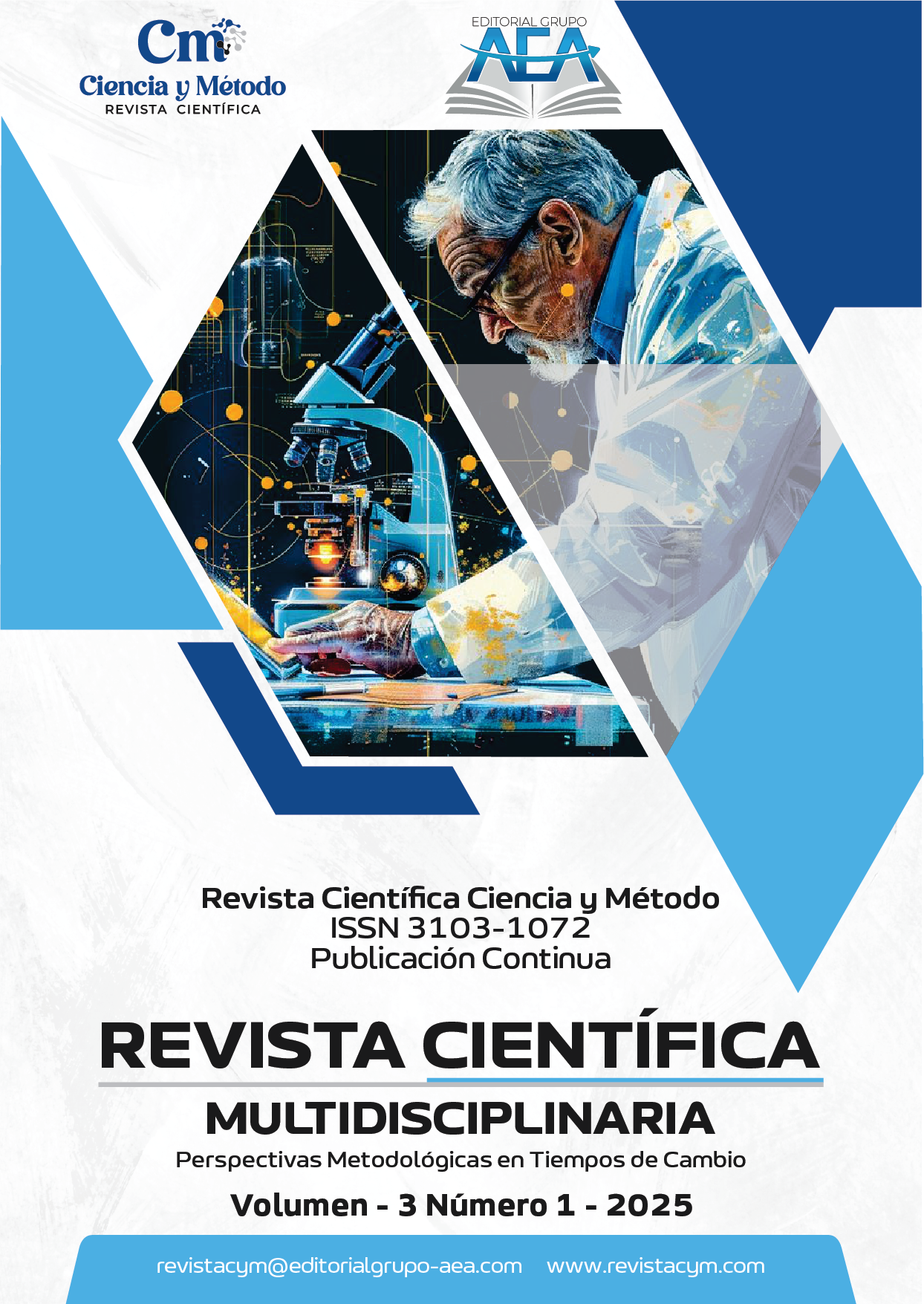Legal challenges in the implementation of the circular economy and its impact on environmental law
Main Article Content
Abstract
The study analyzes the legal challenges that hinder the transition to the circular economy and their impact on the effectiveness of contemporary environmental law. Through a systematic literature review of scientific literature, comparative regulations and international reports, barriers such as the lack of a unified legal definition, the dispersion of administrative competences, the absence of specific regulatory obligations and the scarce harmonization between jurisdictions were identified. It was also found that the complexity of administrative procedures, the lack of appropriate tax incentives and uncertainty about legal liability limit investment and innovation in circular models. The findings show that these limitations generate a fragmented regulatory environment that perpetuates linear production systems and compromises environmental sustainability objectives. The study concludes that overcoming these barriers requires comprehensive regulatory reforms that provide legal clarity, clear incentives and coherent governance mechanisms.
Downloads
Article Details
Section

This work is licensed under a Creative Commons Attribution-NonCommercial 4.0 International License.
How to Cite
References
Arcos-Chaparro, I. A., & Epia-Silva, M. A. (2024). La transverzalización del debido proceso en las relaciones laborales particulares. Journal of Economic and Social Science Research, 4(2), 17–43. https://doi.org/10.55813/gaea/jessr/v4/n2/100 DOI: https://doi.org/10.55813/gaea/jessr/v4/n2/100
Barahona-Martinez, G. E., Barzola-Plúas, Y. G., & Peñafiel-Muñoz, L. V. (2024). El Derecho a la Protección de Datos y el Avance de las Nuevas Tecnologías en Ecuador: Implicaciones Legales y Éticas. Journal of Economic and Social Science Research, 4(3), 46–64. https://doi.org/10.55813/gaea/jessr/v4/n3/113 DOI: https://doi.org/10.55813/gaea/jessr/v4/n3/113
Blomsma, F., & Brennan, G. (2017). The emergence of circular economy: A new framing around prolonging resource productivity. Journal of Industrial Ecology, 21(3), 603–614. https://doi.org/10.1111/jiec.12603 DOI: https://doi.org/10.1111/jiec.12603
Bonilla-Morejón, D. M. (2023). Derecho Penal y Políticas de Seguridad en Ecuador: Análisis de la Eficacia. Revista Científica Zambos, 2(3), 59-74. https://doi.org/10.69484/rcz/v2/n3/50 DOI: https://doi.org/10.69484/rcz/v2/n3/50
Bosselmann, K. (2016). The principle of sustainability: Transforming law and governance. Routledge. DOI: https://doi.org/10.4324/9781315553962
De Jesus, A., & Mendonça, S. (2018). Lost in transition? Drivers and barriers in the eco-innovation road to the circular economy. Ecological Economics, 145, 75–89. https://doi.org/10.1016/j.ecolecon.2017.08.001 DOI: https://doi.org/10.1016/j.ecolecon.2017.08.001
Ekins, P., Domenech, T., Drummond, P., Bleischwitz, R., Hughes, N., & Lotti, L. (2020). The Circular Economy: What, Why, How and Where. Environmental Science & Policy, 92, 213–220.
Geissdoerfer, M., Savaget, P., Bocken, N. M. P., & Hultink, E. J. (2017). The circular economy – A new sustainability paradigm? Journal of Cleaner Production, 143, 757–768. https://doi.org/10.1016/j.jclepro.2016.12.048 DOI: https://doi.org/10.1016/j.jclepro.2016.12.048
Ghisellini, P., Cialani, C., & Ulgiati, S. (2016). A review on circular economy: The expected transition to a balanced interplay of environmental and economic systems. Journal of Cleaner Production, 114, 11–32. https://doi.org/10.1016/j.jclepro.2015.09.007 DOI: https://doi.org/10.1016/j.jclepro.2015.09.007
Kirchherr, J., Reike, D., & Hekkert, M. (2017). Conceptualizing the circular economy: An analysis of 114 definitions. Resources, Conservation and Recycling, 127, 221–232. https://doi.org/10.1016/j.resconrec.2017.09.005 DOI: https://doi.org/10.1016/j.resconrec.2017.09.005
Korhonen, J., Honkasalo, A., & Seppälä, J. (2018). Circular economy: The concept and its limitations. Ecological Economics, 143, 37–46. https://doi.org/10.1016/j.ecolecon.2017.06.041 DOI: https://doi.org/10.1016/j.ecolecon.2017.06.041
Lieder, M., & Rashid, A. (2016). Towards circular economy implementation: A comprehensive review in context of manufacturing industry. Journal of Cleaner Production, 115, 36–51. https://doi.org/10.1016/j.jclepro.2015.12.042 DOI: https://doi.org/10.1016/j.jclepro.2015.12.042
Linder, M., & Williander, M. (2017). Circular business model innovation: Inherent uncertainties. Business Strategy and the Environment, 26(2), 182–196. https://doi.org/10.1002/bse.1906 DOI: https://doi.org/10.1002/bse.1906
Manninen, K., Koskela, S., Antikainen, R., Bocken, N., Dahlbo, H., & Aminoff, A. (2018). Do circular economy business models capture intended environmental value propositions? Journal of Cleaner Production, 171, 413–422. https://doi.org/10.1016/j.jclepro.2017.10.003 DOI: https://doi.org/10.1016/j.jclepro.2017.10.003
Montes, C., & Rincón, A. (2021). Hacia un marco jurídico para la economía circular en América Latina: Retos y perspectivas. Revista de Derecho Ambiental, 13(2), 35–58.
Morseletto, P. (2020). Targets for a circular economy. Resources, Conservation and Recycling, 153, Article 104553. https://doi.org/10.1016/j.resconrec.2019.104553 DOI: https://doi.org/10.1016/j.resconrec.2019.104553
Núñez-Ribadeneyra, R. A. (2023). Derechos Humanos y Justicia Social en el Contexto Ecuatoriano. Revista Científica Zambos, 2(3), 42-58. https://doi.org/10.69484/rcz/v2/n3/49 DOI: https://doi.org/10.69484/rcz/v2/n3/49
Ranta, V., Aarikka-Stenroos, L., Ritala, P., & Mäkinen, S. J. (2018). Exploring institutional drivers and barriers of the circular economy: A cross-regional comparison of China, the US, and Europe. Resources, Conservation and Recycling, 135, 70–82. https://doi.org/10.1016/j.resconrec.2017.08.017 DOI: https://doi.org/10.1016/j.resconrec.2017.08.017
Rizos, V., Behrens, A., Van der Gaast, W., Hofman, E., Ioannou, A., Kafyeke, T., Flamos, A., Rinaldi, R., Papadelis, S., Hirschnitz-Garbers, M., & Topi, C. (2016). Implementation of Circular Economy Business Models by Small and Medium-Sized Enterprises (SMEs): Barriers and Enablers. Sustainability, 8(11), 1212. https://doi.org/10.3390/su8111212 DOI: https://doi.org/10.3390/su8111212
Samaniego-Quiguiri, D. P., & Bonilla-Morejón, D. M. . (2024). Análisis de la Evolución del Derecho Constitucional en Ecuador: Implicaciones para el Desarrollo Democrático. Revista Científica Zambos, 3(3), 1-14. https://doi.org/10.69484/rcz/v3/n3/53 DOI: https://doi.org/10.69484/rcz/v3/n3/53
Wilts, H. (2017). Key challenges for transformations towards a circular economy: The status quo in Germany. International Journal of Waste Resources, 7(2), 1–6. DOI: https://doi.org/10.4172/2252-5211.1000262





